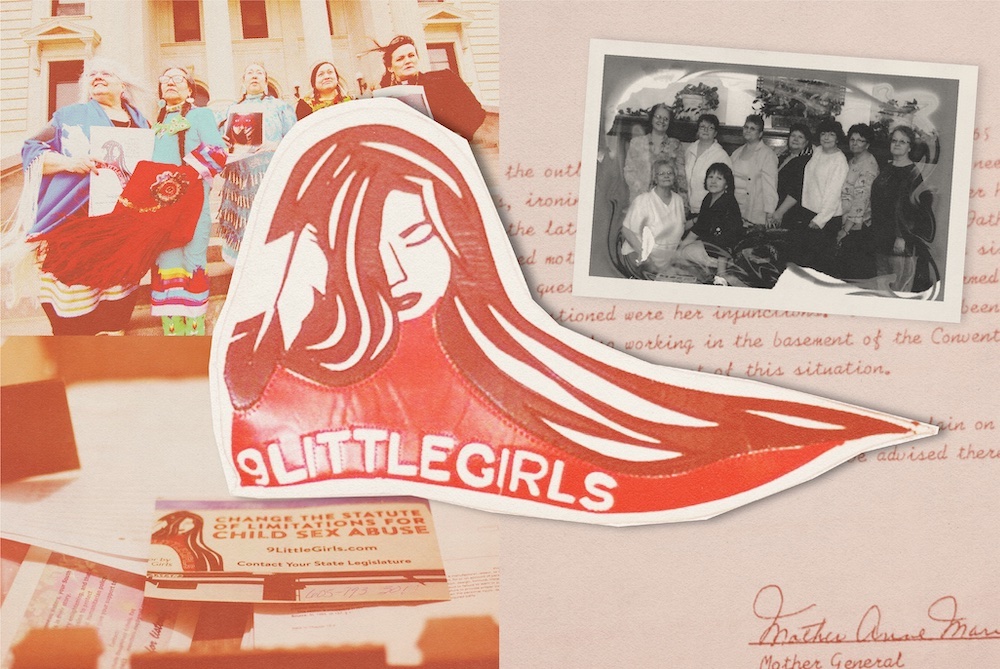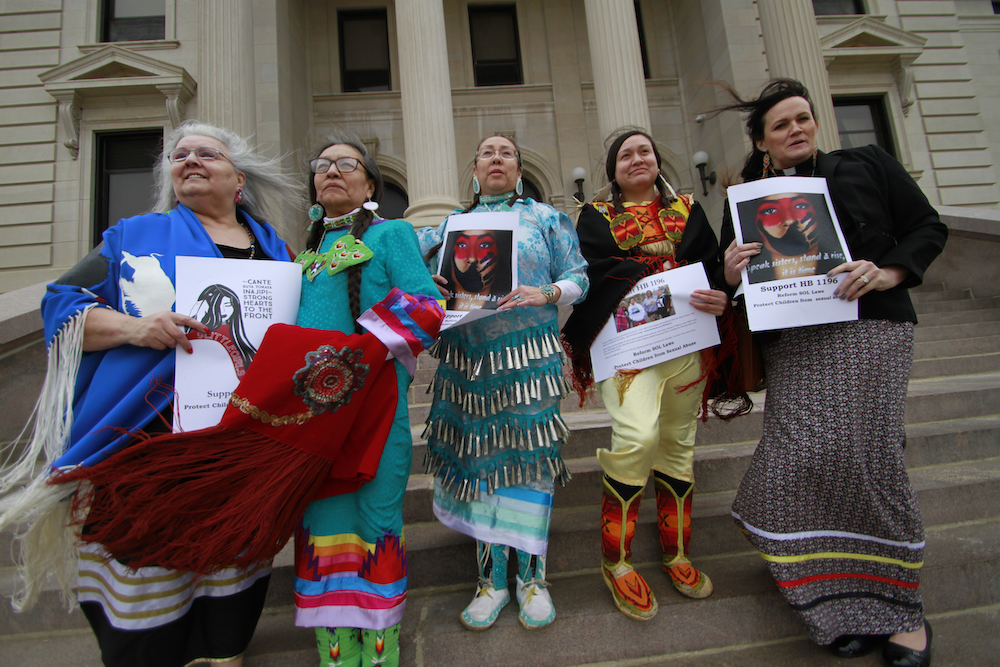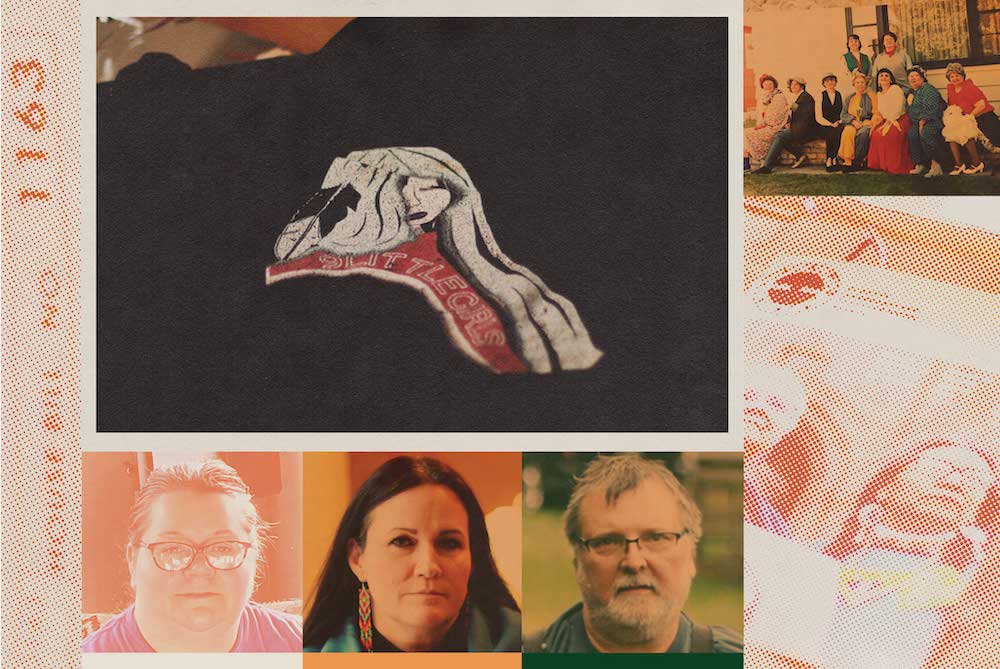
- Details
- By Jenna Kunze
Nine sisters who were abused by priests and nuns at an Indian boarding school in South Dakota have been trying since 2008 to sue the Catholic Church for their abuse. But the church petitioned the state legislature to change the law, and that has kept the nine Charbonneau sisters, members of the Turtle Mountain Band of Chippewa, and other boarding-school survivors from ever getting their day in court. Will they ever see justice? Read the two-part series by Native News Online Senior Reporter Jenna Kunze.
 Part One: ‘They Could So They Did’
Part One: ‘They Could So They Did’
Almost every February for a decade, the nine Charbonneau sisters donned their traditional Turtle Mountain Band of Chippewa regalia, took deep breaths, and piled into cars to travel to the South Dakota Legislature in Pierre. There, the sisters told lawmakers year after year about the abuse they endured as children at the hands of priests, nuns, and staff at St. Paul’s Indian Mission boarding school in Marty, South Dakota.
The sisters’ accounts of molestation, rape, and even a forced abortion aligned with a larger picture of abuse painted by more than 100 other boarding-school students in lawsuits against the Catholic dioceses of Sioux Falls and Rapid City that began in 2003.
But those lawsuits were dismissed by the courts in 2010 as a result of a change in the law. After the Charbonneau sisters’ cases were dismissed, they rallied every year behind legislation that would give them their day in court. Now, Charbonneau family members say that lawmakers' racism, ignorance, and blind support of the church has had its intended effect: Boarding-school survivors are aging, and some have died before ever getting their day in court.
“My mom always said, ‘They’re waiting for us to get old and die so they can forget all about this,’” says the daughter of Barbara Charbonneau-Dahlen, one of the nine sisters.
 Part Two: ‘Their Justice Would Be My Justice’
Part Two: ‘Their Justice Would Be My Justice’
As their mothers, aunties and cousins grow older and, in some cases, walk on to the spirit world, the next generation of Charbonneau relatives takes up the fight for justice against the abuses suffered by the nine sisters.
But they’re struggling, as they wrestle with their own intergenerational trauma, the recent loss of three of the sisters, and an unresponsive legal system.
Faced with considerable obstacles, they say they’re not giving up the fight.
“I want to finish what my mother—our mothers—started,” says one sister’s daughter. “It’s about holding institutions accountable.”
“When I think about it,” says a cousin, an attorney, “their justice would be my justice.”
Tell Us What You Think
More Stories Like This
Native News Weekly (August 25, 2024): D.C. BriefsNative News Weekly (August 4, 2024): D.C. Briefs
Cheyenne River Youth Project Prepares to Host 25th Annual Passion for Fashion Event on March 8
American Indian Alaska Native Tourism Association CEO Appointed to U.S. Travel and Tourism Advisory Board
Federal Grant Freeze Could Impact Tribal Programs, Treaty Obligations
Can we take a minute to talk about tribal sovereignty?
Our mission draws from the warrior spirit that has sustained Indigenous peoples for generations — the same spirit that drives us to stand guard over tribal rights through relentless investigation and fearless reporting.
Sovereignty isn't just a concept – it's the foundation of Native nations' right to govern, protect our lands, and preserve our cultures. Every story we publish strengthens tribal sovereignty.
Unlike mainstream media, we center Indigenous voices and report directly from Native communities. When we cover land rights, water protection, or tribal governance, we're not just sharing news – we're documenting our living history and defending our future.
Our journalism is powered by readers, not shareholders. If you believe in the importance of Native-led media in protecting tribal sovereignty, consider supporting our work today.

